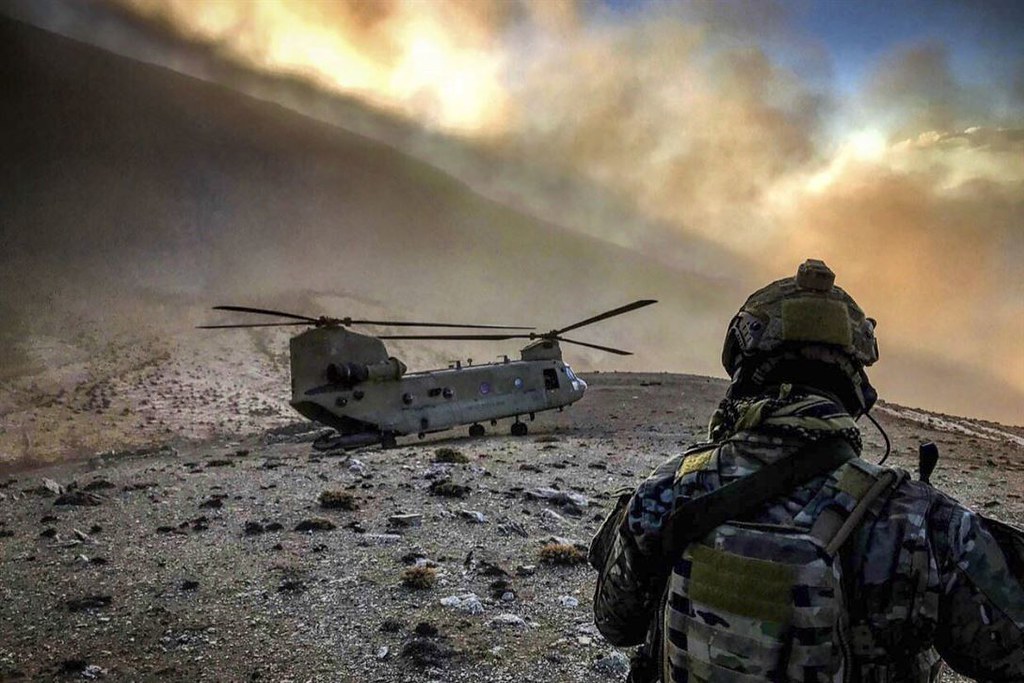Yesterday morning, The New York Times reported the Taliban is on the cusp of total victory in Afghanistan.
The Times being the Times, of course, it didn’t put it quite that way.
“The Taliban Close In on Afghan Cities, Pushing the Country to the Brink,” said the American national newspaper of record in its eccentrically anachronistic headline style.
The Times explained that members of the Islamic political and military movement the United States drove out of power in 2002 and has been at war with ever since “have been encroaching on key cities around Afghanistan for months, threatening to drive the country to its breaking point and push the Biden administration into a no-win situation just as the United States’ longest war is supposed to be coming to an end.”
With the characteristic purblindness of those close to the imperial centre, the Times called Taliban encirclement of Kandahar and other Afghan centres a “brazen offensive.”
There is nothing brazen about it, of course. It is merely the final act, or next to it, in a 20-year resistance to the American invasion in the fall of 2001, which was supposedly mounted in response to the attack on the World Trade Centre in New York on September 11, 2001.
Kandahar fell to American special forces and their Afghan allies that year on December 7, already a significant date in U.S. military history.
The first Canadian soldiers got involved that same month. The Liberals were in power in Ottawa and would be for another two years. Jean Chrétien was prime minister. We need to remember that when we condemn Stephen Harper, quite rightly, for his Conservative government’s enthusiasm for Canada’s long, costly and doomed participation in that war.
Canadians would fight and die there until March 2014.
And for what? We owe it to the 40,000 Canadian soldiers who served in Afghanistan, 158 of whom were killed along with a half dozen Canadian civilians, and the thousands who were maimed physically, mentally and spiritually, to ask ourselves this question.
We were told our soldiers were risking their lives to achieve rights for Afghan women, education for girls, creation of a real Western-style democracy, and other “nation-building initiatives.”
Harper told Canadians our soldiers were “helping rescue Afghanistan and its long-suffering people from violence and oppression.” Did he really believe that?
Who can forget how in 2008 Harper’s Conservatives mocked NDP leader Jack Layton as “Taliban Jack” for daring to suggest we should talk to the Taliban? Conservative Peter MacKay, then the minister of finance, sniped, “is it next going to be tea with Osama bin Laden? This cannot happen.”
Layton, who died in 2011 after leading his party to within sight of government in Ottawa, was remarkably graceful about the serial defamation he endured. When another of Harper’s forgettable foreign affairs ministers, Lawrence Cannon, admitted in 2010 the Taliban had a role to play, Layton resisted the temptation to gloat. “As long as the right thing gets done,” he said, “I don’t really care.”
Were any of our soldiers’ tactical gains ever sustainable? History — as if anyone pays attention to history — suggests they were not.
Are the people of Afghanistan better off? This seems highly doubtful. But if they are, will they be next month, or next year?
Will we welcome refugees driven out by Taliban rule to Canada?
Importantly, should we be in a hurry ever again to join American military adventures abroad? Because, for all the blood and treasure we spent, the “new Afghanistan” sure looks a hell of a lot like the old Afghanistan.
And very soon, it will look even more like it.
Yes, even yesterday the Times was pushing U.S. President Joseph Biden to reverse the Trump administration’s policy of swiftly leaving Afghanistan at last.
“If the Biden administration honours the withdrawal date, officials and analysts fear the Taliban could overwhelm what’s left of the Afghan security forces and take control of major cities like Kandahar in a push for a complete military victory or a broad surrender by the Afghan government in the ongoing peace negotiations,” its story warned.
But if they stay, that will only put off the day.
The Afghans — skilled fighters, patient and tenacious, motivated by religious faith, and inheritors of a long martial tradition — drove out Alexander the Great (who is said to have founded Kandahar), the Mongols under Genghis Khan, the Mughals, the Persians, the Sikhs, the British, and the Soviets, among others.
What other than second-hand imperial hubris made us think that we could be any different?
David Climenhaga, author of the Alberta Diary blog, is a journalist, author, journalism teacher, poet and trade union communicator who has worked in senior writing and editing positions at The Globe and Mail and the Calgary Herald.
Image credit: The U.S. Army/Flickr
Editor’s note, February 17, 2021: A previous version of this story incorrectly stated that the Afghan Taliban drove out Alexander the Great, among others. The Afghans drove him out, not the Afghan Taliban.



